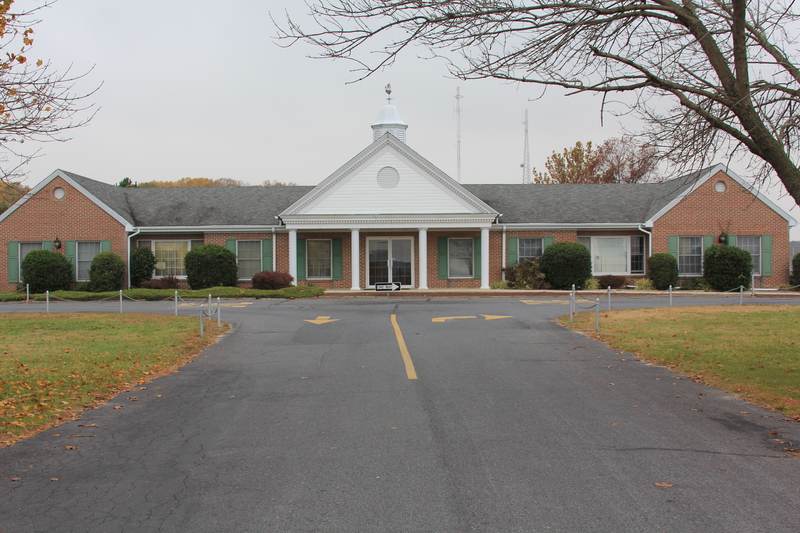Cape Superintendent Bob Fulton said the level of community spread will determine how district schools will open, and parents will be notified by Friday, Aug. 7, of Cape’s reopening plan.
“If we open, we’ll open in a safe way,” Fulton said. “I hope to see schools open with students and staff in school.”
Delaware Department of Education spokesperson Alison May said first the governor must allow schools to reopen for in-person learning; then districts can decide if they will physically reopen, continue with remote learning or create a hybrid approach. May said she did not know when Gov. John Carney would make his decision.
At the July 9 school board meeting, Fulton said Delaware schools will receive recommendations for reopening schools in case of minimal community spread, minimal-to-moderate community spread, and significant community spread from DOE July 13. A district committee will review the recommendations, he said.
Recommendations ranging from sanitizing, hand washing and physical distancing to managing lunchrooms and transportation, redesigning academic programs and facilities, were submitted to DOE by Delaware’s COVID-19 school reopening workgroups that focused on operations and services, academic equity, and health and wellness.
Fulton said a survey will be sent to parents for feedback on their comfort level regarding opening schools and transportation preferences for their children. Fulton said the district must also consider its workforce; he said Cape has nearly 100 employees who are age 65 and older, an age group particularly vulnerable to COVID-19.
He said data also suggests a higher rate of illness and death among racial and ethnic minority groups, and that access to technology is correlated to race and socioeconomic status. Of Cape’s total student population, he said, 22 percent of students are of low socioeconomic status, over 17 percent have disabilities, and 8 percent are English-language learners.
By Friday, Aug. 7, at the latest, Fulton said, the district will provide a framework to staff and families about schooling expectations in each scenario. All information will also be posted on capehenlopenschools.com, he said.
School board member Jessica Tyndall said she was fortunate her husband already had a remote business based at their home, but she said remote learning was a traumatic experience in her household; she said she had two children in school in the spring, and her youngest will start kindergarten in the fall.
“I can’t fathom sending my kid to kindergarten via Zoom,” she said. “It would be awful for her. It’s her first experience at school and it won't work. She's not going to do it; she will refuse, period. The expectation of our governor saying we need to do Zoom school and not everyone in our district has access to Wi-Fi – I think that's unacceptable.”
School board member Bill Collick said students have already missed so much, and the achievement gap will widen if kids aren’t in school.
“Safety is the first thing, but it’s tough for our kids being out of school,” he said.
School board member Julie Derrick said she worried about the students who never attended Zoom classes, and she hated to see the district lose any ground made in closing the achievement gap.
“There’s a whole portion of our Cape community we don't know how they fared, and those are the kiddos that really need to be in school,” she said. “We can make sure they’re fed and learning.”
School board member Jason Bradley said safety was a big concern, and he didn’t want an outbreak in schools. He said his son, a college freshman, lost interest in school when classes transitioned to Zoom.
“He was done with it; he didn’t want to do it anymore,” he said. “The best place for kids to learn is in a school environment.”
Fulton urged staff members and families to social distance as much as possible to help minimize the spread and increase the chance of getting back to school; he said he sees too little social distancing in public.
Several parents Zoomed into the virtual meeting to share their concerns and experiences with remote learning. One parent said her son has asthma, so physically attending school might not work for him.
Alison Houck, who said she has three children in district schools, said virtual learning was weak at the middle school level. For several weeks her child had just an hour of schoolwork to do, she said, and some teachers canceled Zoom lessons the day they were to be held. She said remote learning would have to be more streamlined and challenging.
Jen Kaufmann, who said her son has an IEP for speech and language services, said remote learning material was presented for students without IEPs. She said she had to process the lessons herself, and then present them to him in a way he could understand, a method that took her four weeks to figure out.
“He has regressed in reading, math, all of it,” she said.
Another parent said teachers fully engaged with her children, both of whom have IEPs. She said her daughter is immunocompromised and previously missed a month and a half of school just because of strep throat.
“The thought of sending my children to school right now is absolutely terrifying,” she said, noting she and her husband are both educators. “Health and safety has to be our No. 1 right now.”
Fulton said any future remote learning plan would have more structured expectations and be more consistent among schools than was the case in the spring. He said some parents may not feel comfortable sending their children to school, so plans will be developed for those students, even if it’s for a week or two, and the district will work with families whose children have health conditions.
“Every student should have the same experience,” he said. “We can do better, and we will be consistent as possible with expectations so students receive the same type of service and experience.”






















































